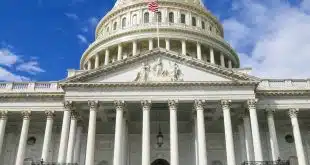As the PayPal Inc. online payment service returned to normal yesterday, its technical problems of the past several days have raised the specter in some circles of the company's non-bank status. Some observers, particularly bankers, have long argued that as a non-bank financial entity, PayPal is not bound by many of the regulations governing banks and as such introduces higher risk into the transactions business. For example, Jeff Neubert, chief executive of the Clearing House Payments Co. LLC, a bank-owned processor in New York, cautioned in a major address last May that banks had ceded too much control of the payments business to non-bank companies like PayPal (Digital Transactions News, May 21). He decried this trend, warning that it injected additional risk into the payments market. But in the wake of what for PayPal could be the most serious trust issue it has had to confront in its six-year history, at least some online merchants and former PayPal executives aren't so concerned. The support of online retailers is especially important to the San Jose, Calif.-based payments company now, since it is embarking on a major strategic shift beyond the eBay community of buyers ands sellers and into general e-commerce (Digital Transactions News, Sept. 30). Jacob Hawkins, director of online marketing for Overstock.com Inc., a Salt Lake City-based online merchant that has accepted PayPal for four years, says, “I would prefer not to comment on that,” when asked how the PayPal outages of the past week affected sales. But his confidence in PayPal remains unshaken. “This last little snafu was the first major problem we've seen with PayPal in the four years,” he says, adding that Overstock.com is in the process of installing new software from the online payments company that will blend PayPal transactions more seamlessly into the retailer's accounting systems. Hawkins says PayPal's non-bank status doesn't bother him because of the company's solid financial footing as a unit of online auction giant eBay Inc. “They're legitimate,” he says. “If they weren't tied to a profitable company like eBay, we'd be more concerned.” Meanwhile, Eric Jackson, a former marketing executive at PayPal whose book about his experiences at the company, The PayPal Wars, came out last month, says PayPal simply exploited a market niche banks had neglected and then beat the banks at their own game. “PayPal took the competitive blows of most of the banks and came out the winner,” he says. In the marketplace, he says, “I don't think the banks are competent enough to do anything about [PayPal].” A PayPal spokeswoman said yesterday the payment service had largely returned to normal after six days of intermittent outages caused by a code update that had been performed late last week. The technical glitch caused PayPal's Web site to be inaccessible at times for some users, affecting the ability of buyers and sellers to use the online payment system, and also interfered with the ability of consumers who carry PayPal debit cards to withdraw funds at ATMs from their PayPal accounts. As of late yesterday, the spokeswoman said there were “still issues having to do with wait times we're dealing with.” PayPal serves 50 million accountholders, of whom 15.5 million are active. The company processed 77.7 million transactions worth $4.35 billion in the second quarter. About 30% of this activity came from payments outside of eBay.
Check Also
Battle Lines Harden Over a Proposed CCCA Amendment to the GENIUS Act
The Teamsters Union, along with labor unions in the retail and food-service sectors, sent a …




